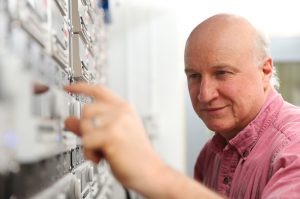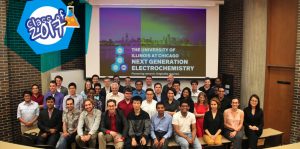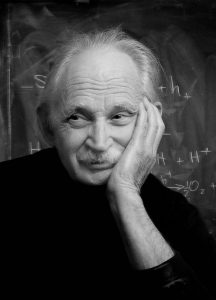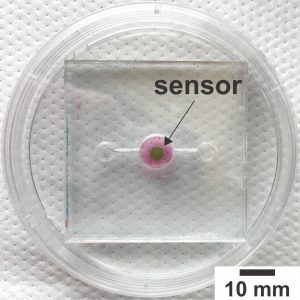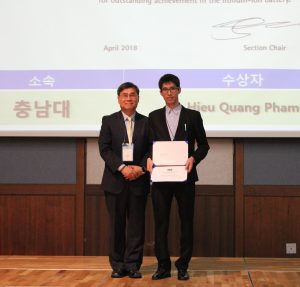More efficient, longer-lasting batteries are needed to ensure the future of the electric vehicle market. Thanks to Jeff R. Dahn and his Dalhousie University research team, a “million-mile battery” may soon be a reality. Dahn is Tesla’s battery research partner. In “A Wide Range of Testing Results on an Excellent Lithium-Ion Cell Chemistry to be used as Benchmarks for New Battery Technologies,” Dahn describes a new Li-ion battery cell with a single crystal NMC cathode and an advanced electrolyte. The new battery should power an electric vehicle for one million miles and last at least 20 years in grid energy storage—making Tesla’s electric-powered semi-autonomous driving cars and trucks viable.
Electrochemists—are you looking for the next challenge in your career? Are you prepared to examine the gaps in the electrochemical science field and willing to take a step back to find new, innovative solutions?
Next Generation Electrochemistry (NGenE), a summer institute on the frontiers of electrochemistry, is offering a one-week NSF-funded Summer Institute program at the University of Illinois at Chicago (UIC) June 3-7, 2019 to do just that. Experienced students and young postdocs are encouraged to apply.
Application Deadline: May 1
Allen J. Bard: Winner of the King Faisal International Prize in Science Award
Posted on January 30, 2019 by Jennifer OrtizAllen J. Bard, regarded as the “father of modern electrochemistry,” was recently announced the winner of the 2019 King Faisal International Prize in Science. According to UT NEWS, the University of Texas at Austin professor of chemistry received $200,000 and a gold medal from the King Faisal Foundation, as a result of the big win.
Bard, an ECS member for over 50 years, is a big believer in chemistry—the chemistry found among people.
“There’s a chemistry that can develop in a group, and that chemistry can lead to very good science,” says Bard.
So it’s no surprise that his team player mentality has indeed led him to “very good science,” so good it earned him the international award, given to only those who have made outstanding contributions in physics, chemistry, biology, or mathematics through original scientific research that brings major benefits to humanity.
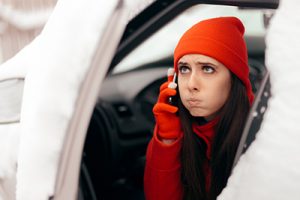 It’s winter. And with that comes heavy coats, icy winds, and occasionally, below freezing temperatures: conditions not favorable for batteries.
It’s winter. And with that comes heavy coats, icy winds, and occasionally, below freezing temperatures: conditions not favorable for batteries.
Car batteries
Temperature extremes, in general, are not favorable to batteries. According to Lifewire, lead-acid batteries drop in capacity by about 20 percent in normal to freezing weather, and down to about 50 percent in temperatures that reach about -22 degrees Fahrenheit.
As a result, you may find your car battery giving out on any given winter morning. This is due to reduced capacity and increased draw from starter motors and accessories. This is because starter motors require a tremendous amount of amperage to get going: knocking out the capacity of even the newest batteries. (more…)
A new biosensor has been developed that allows researchers to track oxygen levels in real time in “organ-on-a-chip” systems, according to North Carolina State University. The organ-on-a-chip makes it possible to ensure that bodily systems more closely mimic the function of real organs. The goal is to use these organs-on-a-chip to expedite drug testing and development by evaluating the effectiveness of new drugs with small-scale, biological structures that mimic a specific organ function, such as transferring oxygen from the air into the bloodstream in the same way that a lung does.
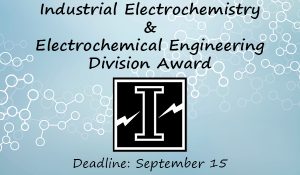 Nomination Deadline: September 15, 2018
Nomination Deadline: September 15, 2018
Are you a student of electrochemical engineering and/or applied electrochemistry? Do you teach or mentor students within these areas? If the answer is ‘yes’ to either question, then the following information is for you! The ECS Industrial Electrochemistry and Electrochemical Engineering Division invites you to nominate qualified student (s) for the following division awards:
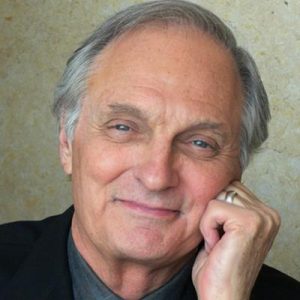 For the legendary actor Alan Alda, it was the same curiosity that drew him into acting that propelled him into the world of science.
For the legendary actor Alan Alda, it was the same curiosity that drew him into acting that propelled him into the world of science.
“I remember as a kid always trying to figure out why things were the way they were. How they got to be the way that they were,” says Alda. He was fascinated with the world around him, from examining a flame at the end of a candle to contemplating human behavior. “Why did adults say the things they said and why they behave the way they did?”
Then, an opportunity arose that mixed a little bit of each world. Alda was asked to host the television show Scientific American Frontiers. A show that discussed new technologies and discoveries in science and medicine.
“I said ‘yes’ on the condition I could actually interview the scientists and not just read a narration,” says Alda, “because I really wanted to hear from the scientists about their work. And I wanted to understand it better. That kind of lead to what I do now which is to help scientists communicate better.”
Nomination Deadline: September 30, 2018
ECS recognizes outstanding technical achievements in electrochemistry and solid-state science and technology through its Honors & Awards Program. There are many deserving members of the Korea Section among us and this is an opportunity to highlight their contributions.
We are currently accepting nominations for the following award:
Korea Section Student Award was established in 2005 to recognize academic accomplishments in any area of science or engineering in which electrochemical and/or solid state science and technology is the central consideration. The award is intended to encourage students who are pursuing a PhD at a Korean university to initiate or continue careers in the field.
(Learn more about electrochemical engineering and pharmaceutical compounds, visit us at AiMES 2018 in Cancun, Mexico from September 30 – October 4, 2018.)
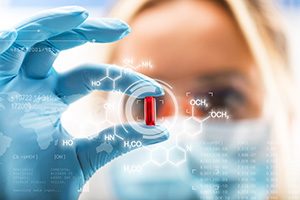 Carbon-nitrogen bonds are the stuff pharmaceuticals are made of. And according to Cornell University, they’re so essential that over 85 percent of the top selling pharmaceuticals have at least one carbon-nitrogen bond. That is to say, advances in carbon-nitrogen bond technology would mean great advances to the drug industry.
Carbon-nitrogen bonds are the stuff pharmaceuticals are made of. And according to Cornell University, they’re so essential that over 85 percent of the top selling pharmaceuticals have at least one carbon-nitrogen bond. That is to say, advances in carbon-nitrogen bond technology would mean great advances to the drug industry.
Song Lin, a Cornell University researcher in the chemistry and chemical biology field and ECS member of the organic and biologic division, is working on doing just that. He says that with electrochemistry, a process that directly uses electricity to drive chemical reactions, it would be possible to create carbon-nitrogen bonds in a sustainable manner. The only problem is that electrochemical reactions often do not offer the chemical selectivity and efficiency needed to accomplish a particular transformation – a problem Lin and his team are working to solve.
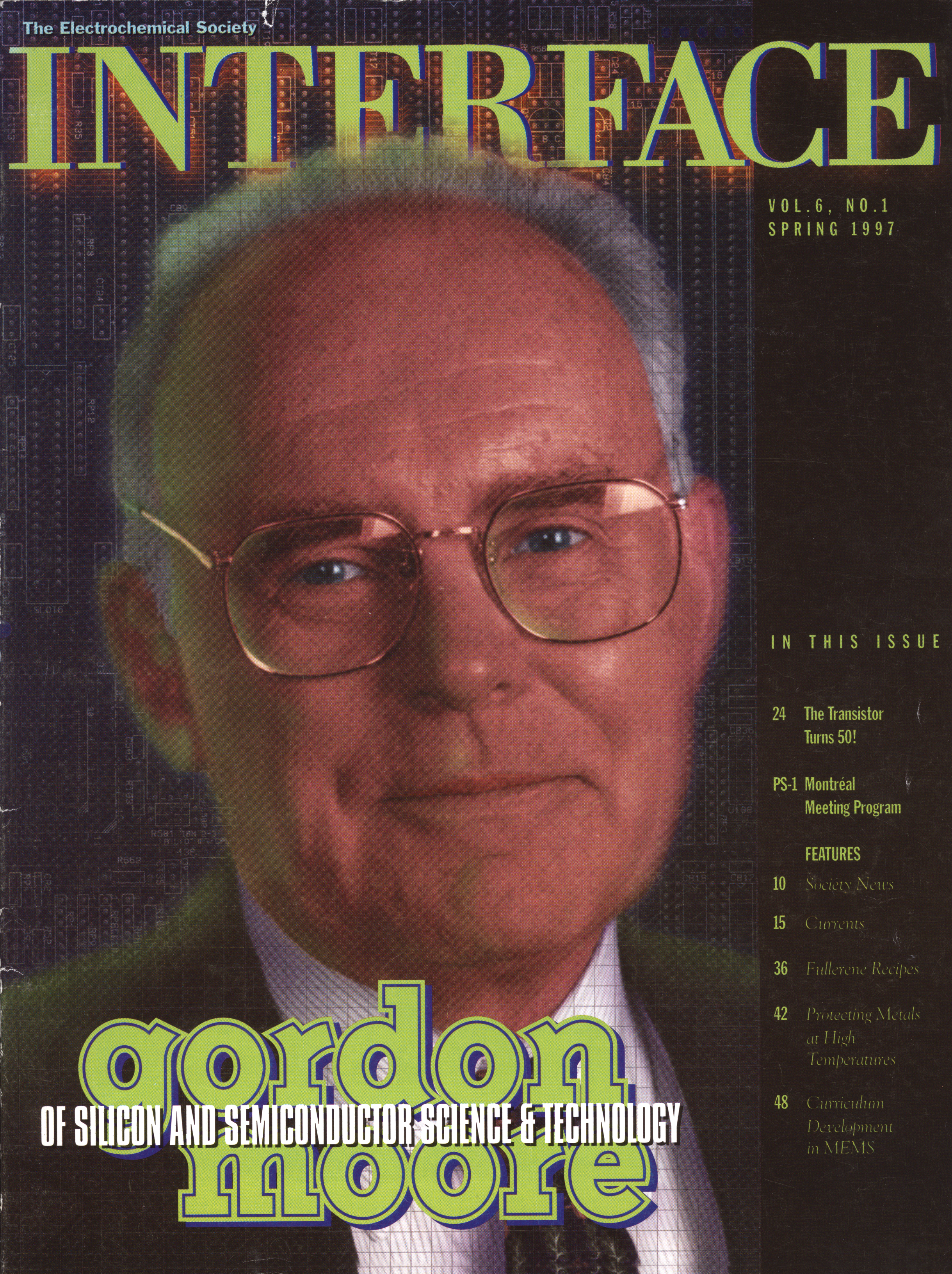 Nineteen sixty-eight marked a year of tragedy but also of transformation. It may be 50 years in our past, but what occurred that year is still very much alive with us today. Here are our top 5 reasons why the scientific advances of that year are super “groovy” in our book:
Nineteen sixty-eight marked a year of tragedy but also of transformation. It may be 50 years in our past, but what occurred that year is still very much alive with us today. Here are our top 5 reasons why the scientific advances of that year are super “groovy” in our book:
5. Patent for the jacuzzi whirlpool hot tub granted
Roy Jacuzzi realized early on that the market for leisure and fitness was a growing one. He set out to create a bathtub that allowed enough room to offer “a relaxing soak,” according to Jacuzzi Inc.’s company history page. With that, the first bathtub with a built-in whirlpool system was born. The laid-back culture of California in the 1970s turned out to be the perfect launching ground for the now widely appreciated and known jacuzzi.
4. Apollo 8 is the first manned spacecraft to orbit the moon
Jim Lovell, Bill Anders, and Frank Borman became the first human beings to orbit another world. According to NASA, on Christmas Eve 1968 the three men were the first to orbit the moon and see Earth as a whole planet. With that, Jim Lovell confirmed, “there is a Santa Claus.”


